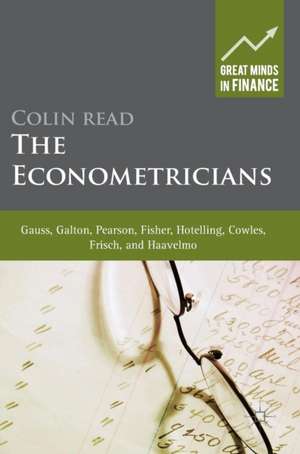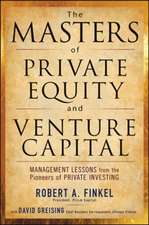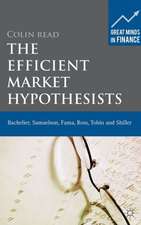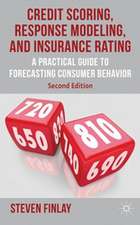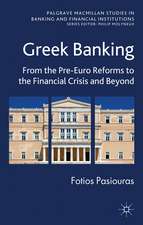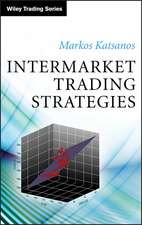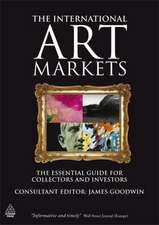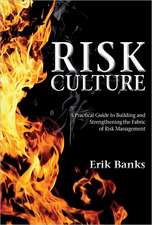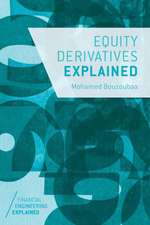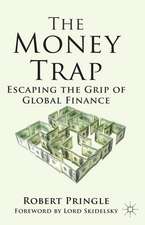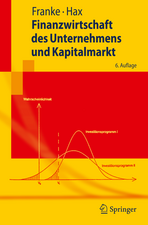The Econometricians: Gauss, Galton, Pearson, Fisher, Hotelling, Cowles, Frisch and Haavelmo: Great Minds in Finance
Autor Colin Readen Limba Engleză Hardback – 22 noi 2016
Preț: 641.11 lei
Preț vechi: 801.38 lei
-20% Nou
Puncte Express: 962
Preț estimativ în valută:
122.69€ • 127.62$ • 101.29£
122.69€ • 127.62$ • 101.29£
Carte disponibilă
Livrare economică 24 martie-07 aprilie
Livrare express 08-14 martie pentru 30.27 lei
Preluare comenzi: 021 569.72.76
Specificații
ISBN-13: 9781137341365
ISBN-10: 113734136X
Pagini: 256
Ilustrații: XXI, 261 p. 21 illus., 19 illus. in color.
Dimensiuni: 148 x 210 x 21 mm
Greutate: 0.46 kg
Ediția:1st ed. 2016
Editura: Palgrave Macmillan UK
Colecția Palgrave Macmillan
Seria Great Minds in Finance
Locul publicării:London, United Kingdom
ISBN-10: 113734136X
Pagini: 256
Ilustrații: XXI, 261 p. 21 illus., 19 illus. in color.
Dimensiuni: 148 x 210 x 21 mm
Greutate: 0.46 kg
Ediția:1st ed. 2016
Editura: Palgrave Macmillan UK
Colecția Palgrave Macmillan
Seria Great Minds in Finance
Locul publicării:London, United Kingdom
Cuprins
1) Preface to the Great Minds in Finance Series.- 2) Preamble.- Section One: Mathematicians and Astronomers.- 3) The Early Life of Carl Friedrich Gauss.- The Times of Carl Friedrich Gauss.- Carl Friedrich Gauss’ Great Idea.- 6)The Later Years and Legacy of Carl Friedrich Gauss.- Section Two: From Least Squares to Eugenics.- 7) The Early Life of Francis Galton.- 8) The Times of Francis Galton.- 9) The Later Life and Legacy of Sir Francis Galton.- 10) The Early Life of Karl Pearson.- 11) Karl Pearson’s Great Idea.- 12) The Later Life and Legacy of Karl Pearson.- Section Three: The Formation of Modern Statistics.- 13) The Early Life of Ronald Aylmer Fisher.- 14) The Times of Ronald Aylmer Fisher.- 15) Ronald Fisher’s Great Idea.- 16) Later Life and Legacy of Ronald Fisher.- 17) The Early Life of Harold Hotelling.- 18) The Times of Harold Hotelling.- 19) Harold Hotelling’s Great Idea.- 20) The Later Life and Legacy of Harold Hotelling.- Section Four: The Birth of a Commission and Econometrics.- 21) The Early Life of Alfred Cowles III.- 22) The Times of Alfred Cowles III.- 23)The Great Idea of Alfred Cowles III.- 24) Legacy and Later Life of Alfred Cowles III.- 25) The Early Life of Ragnar Frisch.- 26) The Times of Ragnar Frisch.- 27) Ragnar Frisch’s Great Idea.- 28) The Legacy and Later Life of Ragnar Frisch.- 29) The Early Years of Trygve Haavelmo.- 30) The Times of Trygve Haavelmo.- 31) Haavelmo’s Great Idea.- Section Five: What We Have Learned.- 33) Conclusions.- 34) Glossary.
Notă biografică
Colin Read is a Professor of Economics and Finance, former Dean of the School of Business and Economics at The State University of New York at Plattsburgh (SUNY), USA, and a columnist for the Plattsburgh New York Press Republican newspaper. He has a PhD in economics, a Juris Doctor (JD) degree in law, a Masters of Business Administration (MBA), a master's degree in taxation, and has taught environmental and energy economics and finance for 25 years. Colin’s recent books include BP and the Macondo Spill: The Complete Story, The Fear Factor, Global Financial Meltdown: How We Can Avoid the Next Economic Crisis, The Rise and Fall of an Economic Empire: With Lessons for Aspiring Nations, Great Minds in Finance: The Life Cyclists, Great Minds in Finance: The Portfolio Theorists, Great Minds in Finance: The Efficient Market Hypothesists, Great Minds in Finance: The Rise of the Quants, Great Minds in Finance: The Corporate Financiers, and Great Minds in Finance: The Public Financiers.
Textul de pe ultima copertă
This is the seventh book in a series of discussions about the great minds in the history and theory of finance. While the series addresses the contributions of scholars in our understanding of financial decisions and markets, this seventh book describes how econometrics developed and how its underlying assumptions created the underpinning of much of modern financial theory. The author shows that the theorists of econometrics were a mix of mathematicians and cosmologists, entrepreneurs, economists and financial scholars. The author demonstrates that by laying down the foundation of empirical analysis, they also forever determined the way in which we think about financial returns and the vocabulary we employ to describe them. Through this volume, the reader can discover the life stories, inspirations, and theories of Carl Friedrich Gauss, Francis Galton, Karl Pearson, Ronald Aylmer Fisher, Harold Hotelling, Alfred Cowles III, Ragnar Frisch, and Trygve Haavelmo, specifically. We learn how each theorist made an intellectual leap simply by thinking about a conventional problem in an unconventional way.
Caracteristici
Provides a thorough review of the history of econometric theory and theorists Offers insight into the lives and times of some of the world’s foremost financial statisticians Analyses the historic development of econometrics as a financial tool
